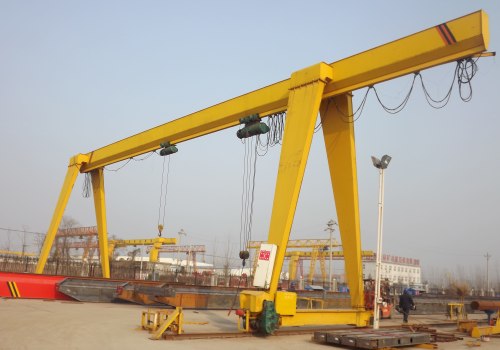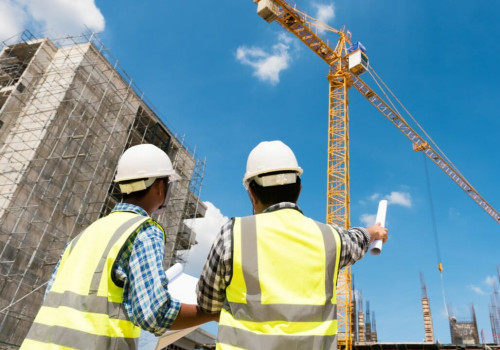Construction projects are complex, multifaceted endeavours that require coordinating numerous moving parts. From the initial concept to the final build, the success of a construction project hinges on meticulous planning, effective communication, and rigorous execution. This is where project management plays a critical role.
Effective project management is not just about keeping a project on schedule and within budget; it's about ensuring that all aspects of the construction process are aligned towards a common goal. In this blog, we will delve into how project management streamlines the construction process, ensuring efficiency, quality, and the successful completion of projects.
Understanding the Complexity of Construction Projects
Before we dive into the role of project management, it's essential to understand why construction projects are inherently complex. Unlike other industries, construction involves multiple disciplines, including architecture, structural engineering, procurement, and construction. Each discipline has its own challenges, and the project's success depends on how well these challenges are managed.
Construction projects are also influenced by external factors such as weather conditions, local regulations, and the availability of materials and labour. If not properly managed, these variables can lead to delays, cost overruns, and quality issues. Therefore, the role of project management is to create a structured approach that minimises risks and ensures that all elements of the project work harmoniously.
Key Roles of Project Management in Construction
1. Planning and Scheduling
One of the primary project management roles in construction is planning and scheduling. A detailed project plan serves as a roadmap for the entire construction process, outlining the tasks that need to be completed, the resources required, and the timelines for each phase of the project.
Effective planning involves defining project goals, identifying potential risks, and developing strategies to mitigate those risks. It also involves resource allocation, ensuring that the necessary materials, equipment, and labour are available when needed. By creating a detailed schedule, project managers can ensure that the project progresses smoothly, with minimal delays.
In addition to traditional scheduling methods, modern project management often employs tools like Gantt charts, Critical Path Method (CPM), and Building Information Modeling (BIM) to create more accurate and flexible schedules. These tools allow project managers to visualise the project timeline, identify dependencies, and adjust real-time plans to accommodate changes.
2. Resource Management
Resource management is another critical aspect of project management in construction. This involves managing the various resources required for the project, including labour, materials, equipment, and finances. Effective resource management ensures that resources are used efficiently and that the project stays within budget.
Project managers coordinate with suppliers, contractors, and subcontractors to ensure that materials and labor are available when needed. They also monitor resource usage throughout the project to prevent waste and ensure it remains cost-effective.
In addition to physical resources, project management also involves managing human resources. This includes assembling the right team for the project, assigning tasks, and ensuring team members have the skills and tools needed to perform their jobs effectively. By managing resources efficiently, project managers can prevent delays, reduce costs, and ensure the project is completed on time and within budget.
3. Risk Management
Risk management is a crucial component of project management, particularly in the construction industry, where unexpected challenges can arise at any project stage. Risks can include anything from delays in the supply chain to unexpected weather events, safety hazards, or financial issues.
Effective project management involves identifying potential risks early in planning and developing strategies to mitigate them. This might involve creating contingency plans, securing additional resources, or adjusting the project timeline to accommodate potential delays.
Project managers also monitor risks throughout the construction process, adjusting to keep the project on track. By proactively managing risks, project managers can minimise their impact on the project and ensure it is completed successfully.
4. Communication and Coordination
Communication and coordination are among the most critical project management roles in construction. Construction projects involve multiple stakeholders, including clients, architects, engineers, contractors, and subcontractors. Effective communication is essential to ensure everyone is on the same page and the project progresses smoothly.
Project managers are all stakeholders' central point of contact, facilitating communication and ensuring that information flows smoothly between all parties. This involves holding regular meetings, providing updates on project progress, and addressing any issues.
In addition to facilitating communication, project managers are also responsible for coordinating the various tasks and activities involved in the project. This involves ensuring that tasks are completed in the correct order and that dependencies are managed effectively. By coordinating activities and ensuring clear communication, project managers can prevent misunderstandings, reduce delays, and ensure the project stays on track.
5. Quality Control and Assurance
Quality control and assurance are essential aspects of construction project management. The goal is to ensure that the final product meets the required standards and specifications. This involves setting quality standards at the beginning of the project and implementing processes to monitor and maintain those standards throughout the construction process.
Project managers oversee the quality of work performed by contractors and subcontractors. This involves conducting regular inspections, reviewing work against the project specifications, and addressing any issues. In addition to monitoring quality, project managers also ensure that safety standards are maintained on the construction site, reducing the risk of accidents and injuries.
Quality assurance processes often involve creating checklists and conducting audits to ensure work is performed to the highest standards. By maintaining strict quality control processes, project managers can ensure that the final product meets the client's expectations and is free from defects.
6. Budget Management
Managing the project budget is a critical responsibility of construction project management. Construction projects are often subject to cost overruns due to unforeseen issues or changes in project scope. Effective budget management involves creating a detailed budget at the beginning of the project and closely monitoring expenses throughout the construction process.
Project managers are responsible for tracking costs, comparing them to the project budget, and making adjustments to keep the project within budget. This might involve negotiating with suppliers, identifying cost-saving opportunities, or changing the project scope to reduce expenses.
In addition to tracking costs, project managers manage cash flow, ensuring that payments to contractors and suppliers are made on time. By managing the budget effectively, project managers can prevent cost overruns and ensure that the project remains financially viable.
7. Change Management
Construction projects are often subject to changes in scope, design, or other factors that can impact the project timeline and budget. Change management is a key project management role in construction, involving identifying, evaluating, and implementing changes to the project plan.
Effective change management involves assessing the impact of proposed changes on the project timeline, budget, and resources. Project managers must weigh the benefits of the change against the potential risks and costs and make informed decisions about whether to proceed with the change.
Conclusion
In the complex and challenging world of construction, project management plays a vital role in ensuring the successful completion of projects. From planning and scheduling to resource management, risk management, and quality control, project managers are responsible for overseeing every aspect of the construction process. By streamlining the construction process and ensuring that all elements are aligned towards a common goal, project management contributes to the overall success of construction projects, delivering high-quality results that meet client expectations. As the construction industry continues to evolve, the importance of project management will only continue to grow, making it an essential component of any successful construction project.










